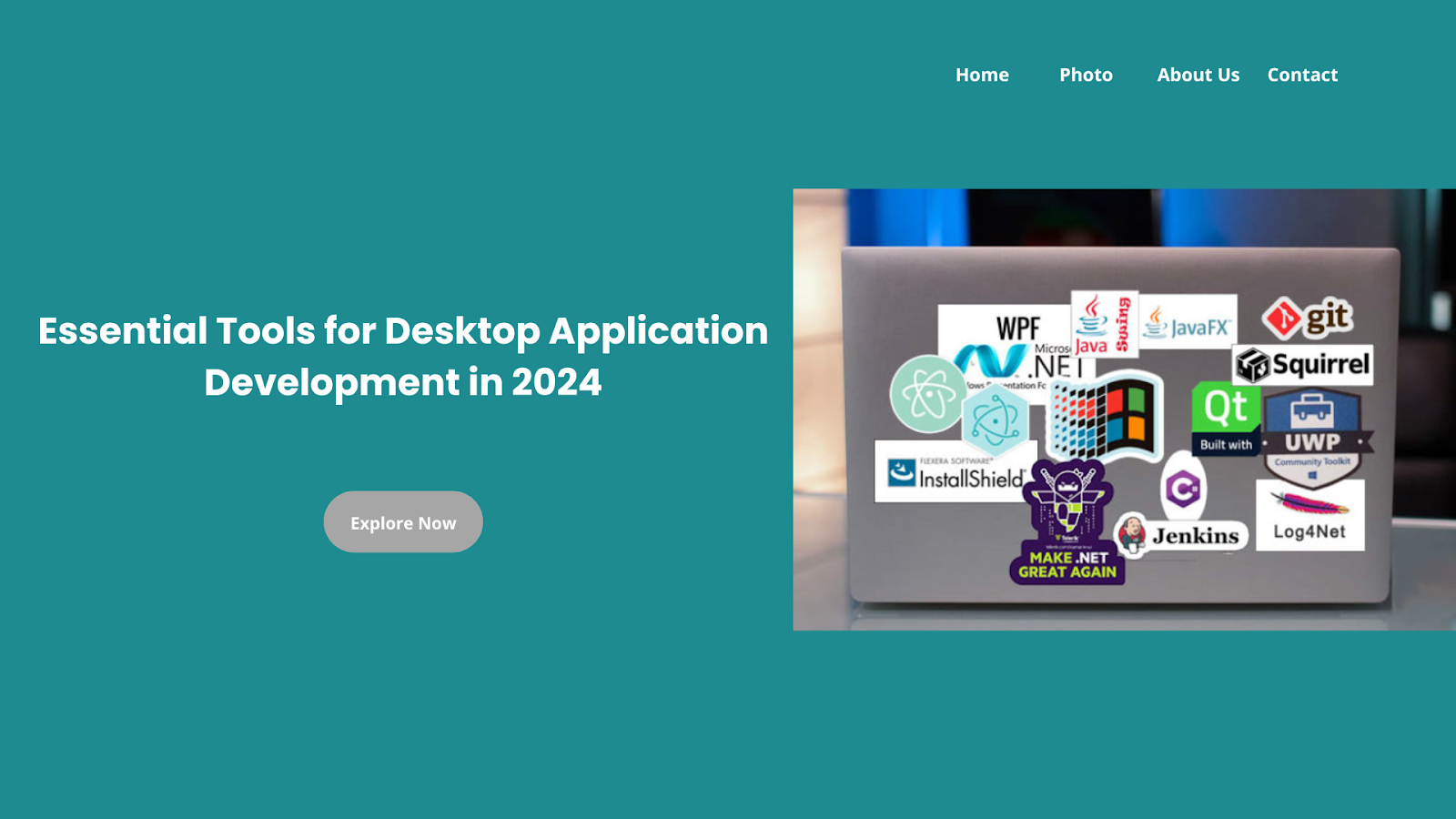Essential Tools for Desktop Application Development in 2024
 Desktop App Development
Desktop App Development
Introduction
In 2024, desktop application development remains a primary focus for many businesses looking to make powerful and systematic software solutions. Whether we’re building tools for efficiency, enjoyment, or business use, selecting the right development tools is important for guaranteeing the success of your projects. From coding environments to testing platforms, the tools we use greatly impact the quality and efficiency of our work.
Top 10 Tools for Desktop Application Development in 2024
1. JetBrains IntelliJ IDEA
IntelliJ IDEA is a familiar IDE, especially for Java developers. With smart coding assistance, built-in tools, and version control support, it’s a favorite for developers focused on creating excellent desktop applications.
2. Visual Studio
Visual Studio remains the main IDE for desktop application development services. It supports several programming languages, including C#, C++, and Python, making it flexible for different project needs. Its integrated debugging and testing tools are priceless for guaranteeing your applications run smoothly.
3. .NET 6 (and later versions)
.NET continues to be a dependable choice for building Windows desktop applications. With the modern versions, you get increased performance, cross-platform capabilities, and support for modern UI frameworks like WinUI and MAUI.
4. Visual Studio Code
Visual Studio Code, while mainly a lightweight code editor, has developed into an adjustable development environment with its huge library of extensions. It’s a great choice for quick desktop development projects and for developers who prefer a more smooth coding environment.
5. PyCharm
For desktop applications created with Python, PyCharm is the IDE of choice. Its advanced code analysis, refactoring tools, and support for frameworks like PyQt make it important for Python desktop application development.
6. GitHub Desktop
Version control is critical in development, and GitHub Desktop simplifies managing repositories, merging branches, and collaborating with team members. It blends well with most desktop application development services workflows.
7. WPF (Windows Presentation Foundation)
WPF remains a favorite for making Windows desktop applications with rich user interfaces. It provides extensive support for building highly customizable UIs and integrates smoothly with. NET.
8. Docker Desktop
Docker Desktop is progressively important for packaging and deploying desktop applications. It allows us to create containerized environments that ensure your apps run consistently across different machines.
9. Qt Framework
Qt is a strong tool for making native desktop applications. It favors multiple platforms and provides an extensive set of libraries and tools for UI design, making it a great option for desktop application development services focused on performance and scalability.
10. Electron
Electron is a framework that permits us to build cross-platform desktop applications using web technologies like HTML, CSS, and JavaScript. It’s extensively used for developing apps that work on Windows, macOS, and Linux from a single codebase.
Wrapping Up
In 2024, desktop application development services require the right blend of tools to provide efficiency, quality, and scalability. Whether you’re using frameworks like Electron and Qt for cross-platform solutions or relying on IDEs like Visual Studio and IntelliJ IDEA, these tools are integral to building modern desktop applications. By staying up to date with the best development tools, you place yourselves to provide software solutions that meet today’s high standards and user expectations.
Subscribe to my newsletter
Read articles from Desktop App Development directly inside your inbox. Subscribe to the newsletter, and don't miss out.
Written by
